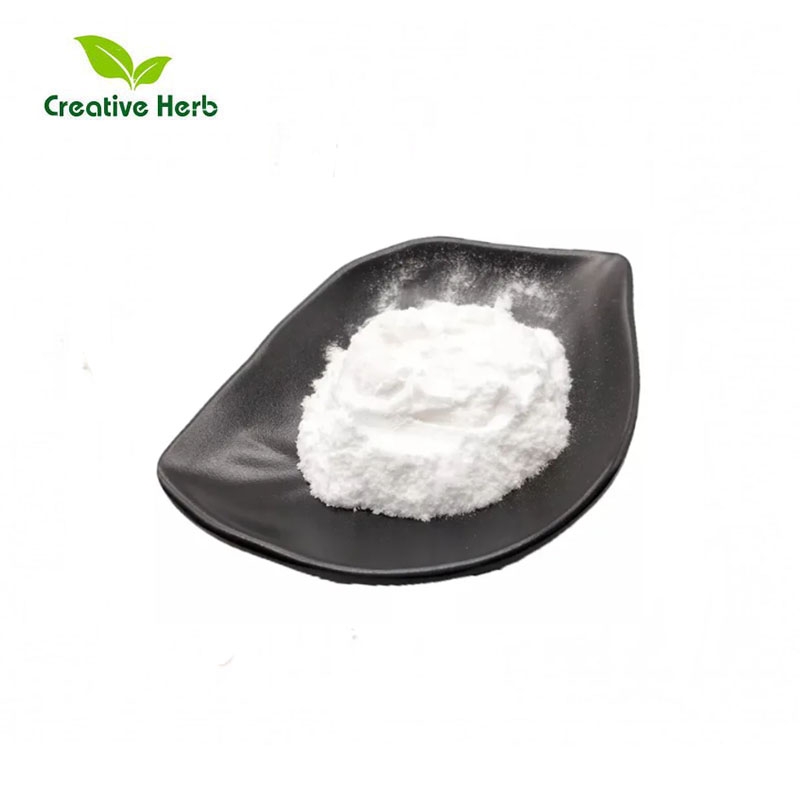PLoS One: break textbooks! Nerve receptors can help control the growth of lung cancer
-
Last Update: 2019-08-19
-
Source: Internet
-
Author: User
Search more information of high quality chemicals, good prices and reliable suppliers, visit
www.echemi.com
August 19, 2019 / BIOON / - a recent study conducted by a group of researchers from the Institute of Bioorganic Chemistry (ibch RAS) and the Moscow Institute of physics and Technology (MIPT) of the Russian Academy of Sciences shows that regulating neural receptors can prevent the growth of lung cancer cells Lynx1 is a protein involved in the regulation of nicotinic acetylcholine receptor Its water-soluble variant can prevent lung cancer cells from dividing in vitro and induce their death Therefore, the protein is expected to become a prototype for the development of new lung cancer drugs This article is published in the journal PLoS One Source: PLoS One nicotinic acetylcholine receptor (nAChRs) mediates signaling in the central and peripheral nervous systems NAChRs were also expressed in epithelial cells and immune cells Alpha-7 nicotinic receptor (α 7-nachr) found in cancer cells plays an important role in many basic processes, such as the development and growth of cancer caused by smoking α 7-nachr is the main receptor of nicotine mediated toxicity in cancer cells A major bottleneck in the success of cancer treatment is the targeting of drugs In order to solve this problem, the researchers chose α 7-nachr as the target, and used protein to regulate its function Lynx1 is a mammalian protein, which has structural homology with snake venom α - neurotoxin But unlike toxins, the binding of lynx1 to nAChR receptors regulates their activity It has been shown that this leads to the induction and activation of intracellular cascade reactions that control the growth and proliferation of epithelial cells Lynx1 not only exists in neurons, but also in kidney and lung tissue, but its role in these organs has not been studied Scientists from ibch Ras and MIPT have found that this protein can be synthesized not only in healthy keratinocytes (cells in the outer layer of the skin), but also in lung, colon, epidermis and other cancer affected cells Through confocal microscopy, they observed the co localization of lynx1 and α 7-nachrs in lung and colon cancer cells Since the activation of α 7-nachr by nicotine can promote tumor growth, and the interaction between lynx1 and α 7-nachr can inhibit this process, the researchers recommend the use of a water-soluble variant of this protein (WS lynx1) for the treatment of epithelial cancer "Recently, we found the membrane binding protein Lyn х 1 in lung tissue The results show that the level of lynx1 in lung cancer cells is lower than that in normal cells However, using genome editing to enhance the production of lynx1 inhibited the growth of cancer cells We assume that a similar effect can be obtained by using WS lynx1, and its concentration and effect are easier to control "Said Ekaterina lyukmanova, group leader of neuromodulatory and neuroreceptor bioengineering research group of ibch Ras and associate professor of physicochemical biology and Biotechnology of MIPT Their experiments confirm this hypothesis After 72 hours of incubation with WS lynx1 and A549 cells, the number of cancer cells decreased significantly A549 cell line is a model lung cancer cell line In addition, the researchers found that the use of WS lynx1 can eliminate the effect of nicotine, which is known to promote tumor growth The authors of this study proposed a two-stage mechanism of WS lynx1 action In short, WS lynx1 interacts with α 7-nachrs to activate many signaling pathways in tumor cells, inducing cell cycle arrest and programmed cell death apoptosis Mikhail shulepko, a co-author of the study and researcher of ibch RAS, added: "we have shown that water-soluble variants of lynx1 can prevent tumor cells from dividing and induce them to apoptosis Therefore, the use of an α 7-nachr regulator similar to lynx1 is promising in cancer treatment "Reference: Maxim Bychkov et al Water double variant of human lynx1 causes cell cycle arrest and apoptosis in lung cancer cells via modulation of α 7 nicotinic acylchorine receivers, PLoS One (2019) Doi: 10.1371/journal.response.0217339
This article is an English version of an article which is originally in the Chinese language on echemi.com and is provided for information purposes only.
This website makes no representation or warranty of any kind, either expressed or implied, as to the accuracy, completeness ownership or reliability of
the article or any translations thereof. If you have any concerns or complaints relating to the article, please send an email, providing a detailed
description of the concern or complaint, to
service@echemi.com. A staff member will contact you within 5 working days. Once verified, infringing content
will be removed immediately.







